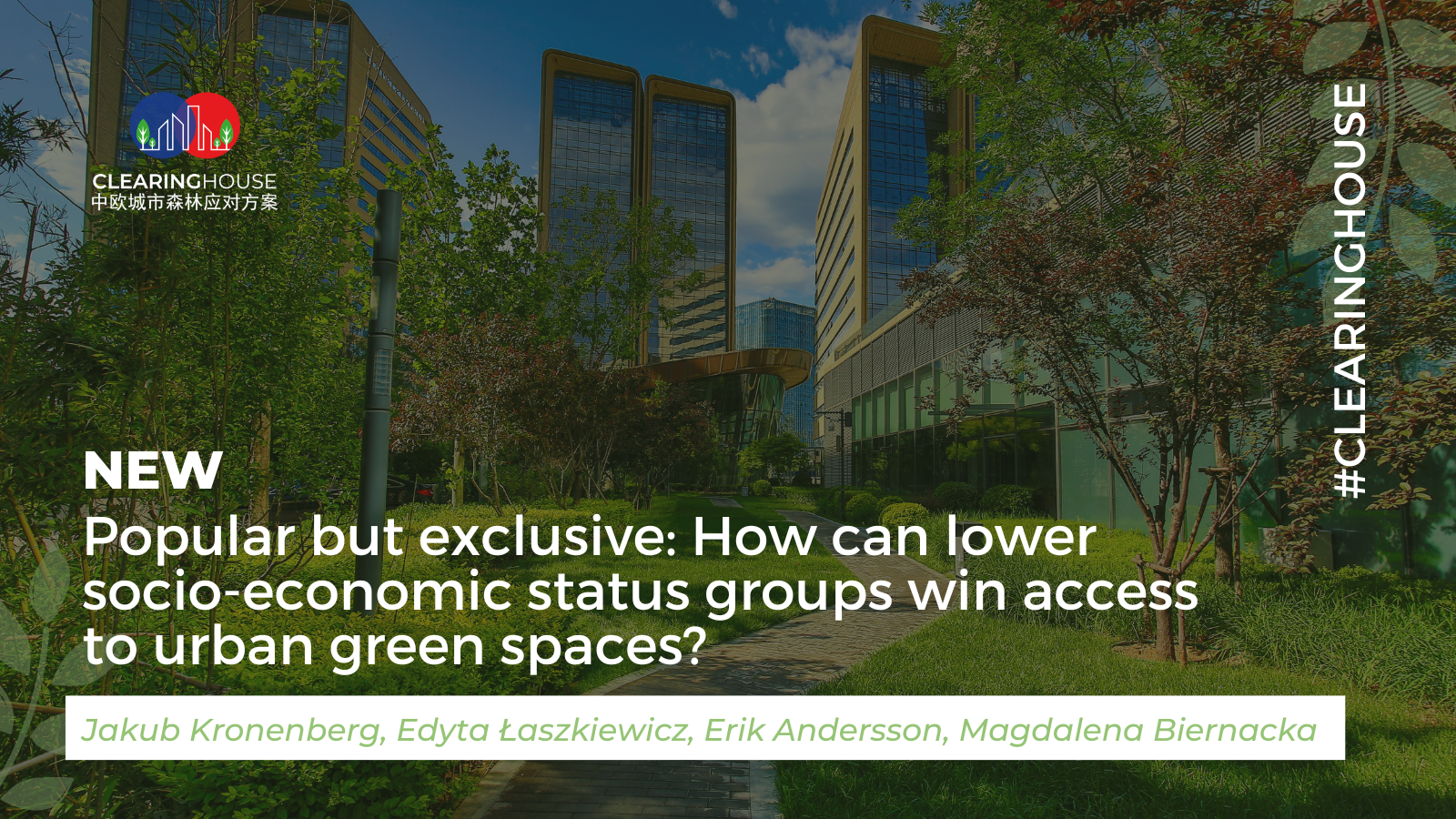
Popular but exclusive: How can lower socio-economic status groups win access to urban green spaces?
Discover this new publication by project parnters Jakub Kronenberg, Edyta Łaszkiewicz, Erik Andersson, Magdalena Biernacka focused as they pose the question of how lower socio-economic status groups can win access to urban green spaces.
Discover the abstract here:
“Territorial conflicts related to the use of urban green spaces typically result from conflicting preferences and institutions not being able to account for the equitable distribution of benefits. Our study focuses on the value conflicts and contestations around using an urban green space as a “social good” and the political processes of defining what makes it “good.” It investigates the institutional setting and the preferences of 415 forest users in a series of entertainment events organized in a large municipal forest (Lagiewniki) in Lodz, Poland. The low socio-economic status group benefited at the cost of the high socio-economic group, whose members typically chose to change their routes in the forest to avoid the nuisance related to these events. The fact that the lower socio-economic status group benefited seems to have been an unplanned side effect of leasing the deteriorating site (to reduce municipal costs) to a company that chose to pick a low-hanging fruit and not invest in developing the site but only cater to the less picky clientele. The local authorities responsible for leasing the site turned a blind eye to the various nuisances caused by these events and disregarded local conservation provisions. We put this case in the context of the “lumpengeography of capital” (Walker, 1978), which suggests that due to the relative scarcity of capital and the abundance of green spaces, some areas remain in a stage of disinvestment, perhaps only temporarily awaiting the next wave of capitalist redevelopment.”
